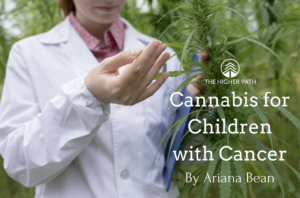THC, THCV, THCa
Since its debut in the ’70s, cannabis research has come to great lengths, uncovering the many medical miracles the plant has to offer. Today, we’ll be exploring what the Tetra cannabinoids have in store for the cannabis community. Before we get started, I should explain how to read this blog. We start by introducing the cannabinoid, followed by the most prominent medical benefits, and finish with products that contain the specific cannabinoid. Get ready to dive into the wonders of THCV, THCa, and THC.
THCV
Don’t let the first three letters fool you. Although THCV and THC share many similarities in molecular structure, both have quite different properties. When activated at a high temperature (428°F), THCV can cause a very short-lived psychoactive effect in contrast to THC’s long-lasting high. It is a form of THC, just much much rarer to come across. So, here’s what you need to know about THCV.
The cannabinoid can only be found in landrace Sativa strains. Some of THCV’s reported effects once consumed are focused, motivated, active, and uplifted. With little to no sedative effects, THCV is the perfect cannabinoid for daytime use.
So, the question remains, does THCV get you high? The answer, as always: it depends! THCV is a CB1 antagonist at a low dose, meaning it shuts down our CB1 receptors, literally bringing down a THC high. However, THCV is a CB1 agonist at higher doses, meaning it does cause a high, very distinct one. For those who have tried CBG gummies from WYLD, the feeling is exactly the same.
THCV’s Medical Benefits
- Appetite-suppressant
One of the biggest questions I get as a budtender is, “Will this make me eat my whole fridge?”After a good laugh, I am always truthful and answer yes. I estimate that around 70% of our products in-store will stimulate some appetite. Patients are always looking for ingenious ways to avoid the munchies (eating beforehand, drinking water, keeping sugar-free mints handy, etc.). Look no further folks, the holy grail is here. THCV has been reported to reduce and even cut appetite for hours at a time! In their study on rodents, international researchers found that THCV cuts appetite and increases satiety (the feeling of being full). - Antioxidant
According to the British Journal of Pharmacology, THCV has the ability to block CB1 receptors while activating CB2 receptors simultaneously. With these antioxidant properties, THCV is a strong contender against the progression of Parkinson’s Disease. On the same token, it can delay neurodegeneration, which is one of PD’s most harmful symptoms (2).
Malawi Gold is a known strain to have high amounts of THCV. The strain has been named after one of Africa’s most heartwarming countries, Malawi. This rare flower can only be grown in the most tropical outdoor settings due to its rapid and tall growth as a pure African landrace strain. Matching its growth spurt is the high’s onset: swift and short-lived.
Since THCV is found at such low levels, certain cannabis companies extract the cannabinoid to offer its amazing benefits. Some products with isolated THCV include Level’s famous tablinguals.
Our shop also carries Care By Design’s Effects: Focus. These capsules and tinctures have a combination of THCV, THC, CBD, and CBDA for a blissful blend of cannabinoids that will help you zone in on any task you challenge yourself to.
THCa
Onto a cannabinoid we’ve explored a little more here through our blogs is THCa. Delta-9-tetrahydrocannabinolic acid (THCa) is the raw form of THC.
THCa itself is not very bioavailable, meaning that our bodies don’t easily absorb the acidic forms of cannabinoids. Once you boil THC at 310°F for around 7 minutes, you obtain THC. This form of the cannabinoid, THC, is much more bioavailable, and that’s how your body can interact with it and why you feel it. Once THCa is converted to THC, that’s when it becomes psychoactive. So heads up, if you’re getting a THCa tincture, do not leave it in your car!
THCa’s Medical Benefits
- Stops cancer cell growth
The anti-proliferative properties of THCa have shown success in inhibiting cancer cell growth. - Antiemetic
THCa’s fight with cancer branches over to some of the major symptoms patients experiences with chemotherapy. THCa has helped patients fight nausea, headaches, and appetite loss. THCa is actually more potent than THC in fighting these symptoms since it doesn’t have the psychoactive effects, as this could easily alter the nervous system.
- Neuroprotectant
Protects against neurodegenerative diseases such as Alzheimer’s or ailments such as diabetes that directly harm the nervous system. (1)
- Tinctures
Keeping cannabis in its raw form is tricky, so tinctures are most prevalent. Taken sublingually, tinctures take around 45 minutes to an hour to start working. Most are infused with olive oil or coconut oil.
- Transdermal
A transdermal patch is a discreet way to benefit from THCa. As a transdermal, it only works on surface ailments and ailment and will not reach subcutaneous tissue. Perfect for use during any time of the day. Our favorite patch is Mary’s Medicinal THCa.
- Tab
Level’s THCa protab is also a fantastic long-lasting product that offers the benefits mentioned above. Tablets usually take 30-45 minutes to kick in and last up to 4-5 hours. Simply swallow like a vitamin and voilà.
THC
Onto the most popular of the tetra family and the world of cannabinoids, THC. I’m sure you’re already familiar with the life of the party here. This cannabinoid is psychoactive, stress-relieving and uplifting, but does a lot more than just getting you high.
THC’s been used for the past few millenniums (500 BCE is the earliest record of its use). Some of the most popular uses are for relaxing, boosting creativity, helping with some serious medication side effects. I mean, the list goes on. Of the thousands of ailments THC can treat, I’ve decided to give you a little tour of some more recent breakthroughs that show just how THC is being used in the medical field today.
THC’s Medical Benefits
- Neuroprotectant
A neuroprotectant is a medication or natural compound able to protect the neuronal
structure. Neurons are responsible for sending and receiving information from the brain to the body. Some motor neuron diseases include various Sclerosis, Spinal and Progressive muscular atrophy, and post-polio Syndrome.
THC has been shown to effectively protect and reverse the damage inflicted upon the neuronal structure (3).
- Helps treat PTSD
Post-traumatic stress disorder is triggered by exposure to a violent and/or stressful situation. The most common reaction to this stress is an acute feeling of dread or powerlessness.
The part of your brain responsible for emotional memories and fear control is called the amygdala. The endocannabinoid system is located, of course, in several parts of your brain but has receptors located in the amygdala. THC’s propensity to disrupt memory processing has been an effective treatment for PTSD. Strains that work best for PTSD are those high in Limonene and Linalool.
I’ll refrain from creating an extensive list of products that contain THC. My guess is that around 70% of our products contain some form of THC, whether it’s flower, edibles, tinctures, or drinks. The key to finding which product suits you best is first to determine what you want to achieve! Make sure to give budtenders as much information as you can to find exactly what you need.
Sources:
- (1) Abioye, A., Ayodele, O., Marinkovic, A. et al. Δ9-Tetrahydrocannabivarin (THCV): a commentary on potential therapeutic benefit for the management of obesity and diabetes. J Cannabis Res 2, 6 (2020). https://doi.org/10.1186/s42238-020-0016-7
- (2) García, C., Palomo-Garo, C., García-Arencibia, M., Ramos, J., Pertwee, R. and Fernández-Ruiz, J. (2011), Symptom-relieving and neuroprotective effects of the phytocannabinoid Δ9-THCV in animal models of Parkinson’s disease. British Journal of Pharmacology, 163: 1495-1506. https://doi.org/10.1111/j.1476-5381.2011.01278.x
- (3) Hampson, A.J., Grimaldi, M., Axelrod, J.,&Wink, D.(1998). Cannabidioland (-)Delta9-tetrahydrocannabinol are neuroprotective antioxidants. Proceedings of the National Academy of Sciences of the United States of America, 95(14), 8268–8273. https://doi.org/10.1073/pnas.95.14.8268




